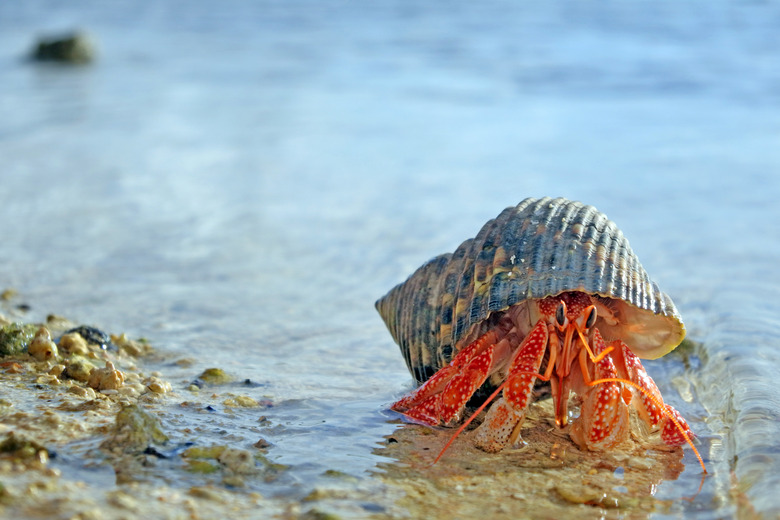What Can Hermit Crabs Eat? Here's A List Of Hermit Crab Foods They Can Eat
Hermit crabs are scavengers by nature — so when you're feeding them, almost any healthy food is worth trying. Like most living creatures, they enjoy having different foods at each meal. It's best to avoid commercially prepared hermit crab food — which may contain pesticides, chemicals, and other non-nutritious, and even harmful ingredients — and prepare your own food.
Meat and protein
Meat and protein
Hermit crabs are natural scavengers, which means they will eat almost anything. but when you are planning their diet, give them foods that are nutritious. Hermit crabs need protein-rich foods every day. Most of their daily protein should come from meat or fish — you can feed lean beef, chicken or turkey, salmon, tuna, shrimp, and eggs.
Eggs can be hard-boiled or scrambled. Fish can be fresh or freeze-dried; consider krill and plankton. Give plant proteins, too, such as broccoli, corn, kale, spinach, snap peas, lentils, millet, soy beans, rice, alfalfa hay, and wheat germ.
Vegetables and fruits
Vegetables and fruits
Give pet hermit crabs small amounts of vegetables and fruits almost every day. Organic products are best because they lack chemicals that can harm them. Give them small bits of your varied diet.
You can include cucumber, zucchini, cauliflower, carrots and carrot tops, cilantro, chard, dark green lettuce, bell peppers, apples, berries, melons, pears and citrus fruits. Include sea vegetables, too — algae, kelp, seaweed and spirulina, says Petco.
Flowers, leaves, and grasses
Flowers, leaves, and grasses
Plants like flowers, leaves, and grasses make nutritious fill-ins for a hermit crab's diet. Consider wheat grass; the leaves of broccoli, cauliflower, blackberries and strawberries; and flowers such as marigold, hibiscus, dandelion, carnation, jasmine, nasturtium, and pansy. Other choices are Irish moss, sea fan, sea grass, rose petals and hips, alfalfa, and mint — excluding peppermint.
Grains, seeds, and oils
Grains, seeds, and oils
Grains such as amaranth, barley, cornmeal, brown rice and seven-grain cereals provide carbs, vitamins and minerals to help fulfill hermit crabs' dietary needs. Seeds are a nutritious source of healthy fats. Try giving pumpkin, sunflower and flax seeds every other day. Occasionally, small amounts of oils can be given instead — such as olive, canola, coconut, sunflower, and palm oil.
Treats and other foods
Treats and other foods
A treat can be anything the hermit crab doesn't receive on a regular basis. That means treats can still be healthy. Popcorn is a wholesome whole food that some hermit crabs enjoy. The crunch of crushed cuttlebone or oyster shell adds variety, says Fishkeeping World.
Not only that, How Stuff Works says it also provides the benefit of calcium, which they need plenty of because their exoskeleton is made of calcium, just like human bones. Fish flakes provide a quick way to give many vitamins and minerals in one food, with a texture unlike the fresh foods the hermit crab normally eats.
Remember fresh water
Remember fresh water
Hermit crab care also includes providing a bowl of fresh water at all times, preferably in a size they can crawl in and out of. Change the water daily and clean the bowl weekly.
Also provide a bowl of saltwater about once a week; the hermit crab will become accustomed to its occasional appearance. Buy commercial sea salts and follow the directions to prepare your own water.
How and when to feed
How and when to feed
Hermit crabs are nocturnal creatures, most active at night. That includes eating. Don't be surprised to see that a hermit crab hasn't touched his food all day but makes up for it by snacking at night. Give very small amounts of several different foods to see what he prefers, and increase the amount of each as needed.
Some hermit crabs will go several days without eating at all — or a whole month when they're molting — but be sure to provide food every day anyway. Discard perishable foods within two hours; change other foods daily. Multiple hermit crabs need more than one dish to be sure all get ample food.
